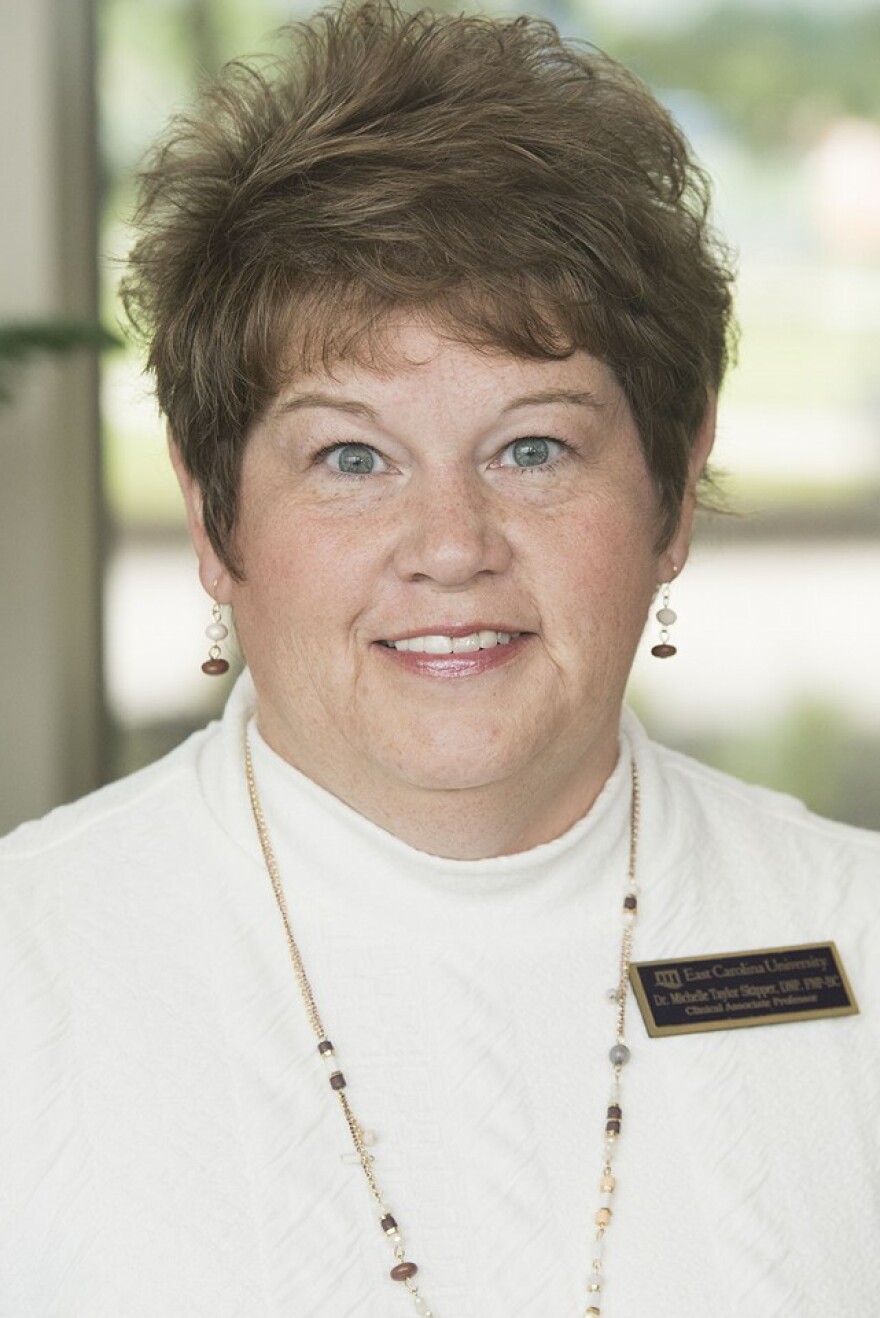When Hurricane Matthew devastated her rural community, Michelle Skipper was there to help. She and her husband cooked and did laundry for hundreds of people staying at an emergency shelter in St. Pauls, a small town in Eastern North Carolina.
But her dedication to her community did not start with the hurricane nor stop when the flood waters receded. Skipper has led a life of service. She has worked in a rural health clinic for years and led numerous mission trips to Nicaragua with her husband.
Skipper is a clinical professor and the director of the Doctor of Nursing Practice Program at East Carolina University, where she is involved in recruiting the next generation of rural health care workers. Host Frank Stasio talks with Michelle Skipper about her life in rural North Carolina and the many experiences that have shaped her mission of service.
We need, in healthcare and in other industry, to recruit young, educated people back to rural North Carolina. - Michelle Skipper
Interview Highlights
A saying from her maternal grandfather that got her family through hard times:
It's a line from Amazing Grace … It's in the third verse. It says: his grace has brought us safe thus far, and his grace will lead us home. And my mother has warped it a little bit to say: God has not brought us this far to turn back now. Why should we worry?
On healthcare providers who did not grow up in rural areas working in rural healthcare:
Sometimes folks acclimate and healthcare providers acclimate to communities and make commitments to be there for the long haul. Unfortunately, more often we see folks who come in for short times of loan repayment, or they come to a rural area and realize very quickly that that's not for them. And so it ends up affecting patient care when you have a rapid turnover of providers.
I think there's this misnomer out there that you can't be educated and rural at the same time, and that's simply not true. - Michelle Skipper
The mission of the Doctor of Nursing Practice Program:
Our goal has always been that we're going to put that advanced practice clinician in Eastern North Carolina who knows how to do more than to treat medical and health care issues. They need to know more than how much penicillin it takes to cure strep throat. They need to know what the billing and insurance liability is for that. They need to understand how many cases of strep throat are in their community. They need to be able to look at macroeconomics and public health in a larger way in their communities so that it’s not a day-by-day, case-by-case, patient-by-patient kind of visit, but they understand the trends of healthcare that are happening in their community. And that doctorate gives them the education to do that.










